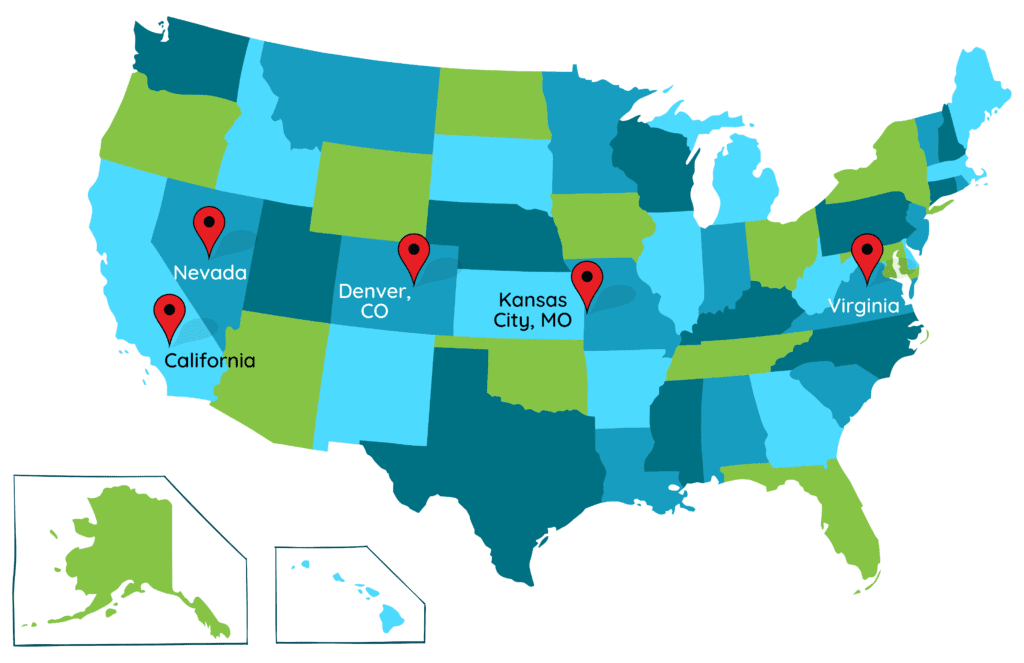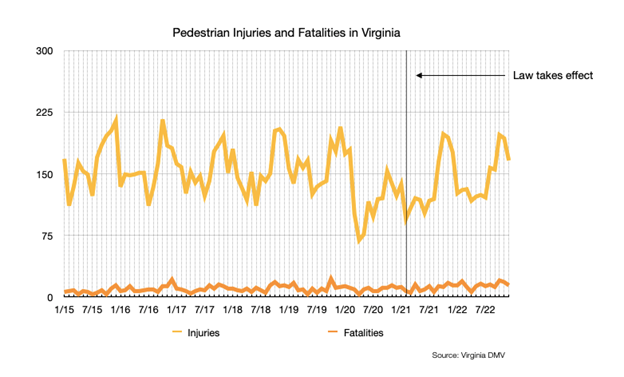Denver is the latest place to eliminate harmful “jaywalking” laws that are enforced unfairly.
By Angie Schmitt

The movement to decriminalize walking continues to make rapid progress.
Decriminalizing Walking in Denver
The latest place to join the decriminalization movement is Denver, Colorado (population: 700,000), where City Council voted 10-3 to strike jaywalking from the city’s codes last week.
Denver showed a similar pattern we’ve seen in most places around the country where Black pedestrians were disproportionately likely to be cited for jaywalking; over a five-year period, they accounted for 41 percent of the tickets issued by Denver police despite making up just 10 percent of the population, according to the Denver Post.
The Denver Post notes state law, which still bans crossing mid-block, remains in effect but the local law instructs police to treat it as their “lowest priority.”
Less than two years ago Virginia became the first state to decriminalize. Kansas City, Missouri, the state of Nevada, and more recently, the state of California, have followed in rapid order. Now more than 52 million Americans now live in jurisdictions that have decriminalized jaywalking in some form — something that would have been unthinkable just a few years ago, before the George Floyd protests and the energy for criminal justice reform that it gave rise to.
There were those who predicted a safety disaster would result from these laws, but more than a year and a half later that doesn’t appear to be the case in Virginia. We’re keeping an eye on safety data from this state, the first state to legalize walking.

The above isn’t a controlled study — and we hope one is coming soon. However, as you can see, it’s hard to discern any noticeable impact. That shouldn’t surprise us because pedestrians already have every incentive to avoid getting hit by cars.
What’s Next?
There’s hope for more progress on the horizon as well. A pair of bills have been introduced in Washington State that would decriminalize jaywalking in most instances.
During a forum on the issue hosted by the Transportation Choices Coalition last week, Ph.D. candidate and local advocate Ethan Campell shared findings from research he conducted for TCC, by combing through hundreds of police records. Campbell found — like in Denver — Black Washington residents were four times more likely to be stopped for jaywalking. In addition, he found 44 percent of those cited for jaywalking in Washington State between 2017 and 2022 were homeless. About 6 percent of these stops end in arrest.
He said his research indicates that police use the law as a way to “stop and frisk” certain people, more so than out of concerns about street safety, since police ran warrant checks on 80 percent of those stopped for “jaywalking.” (More on how you can support the campaign here.) America Walks supports what is now a nationwide movement to decriminalize jaywalking. The history and application of jaywalking laws show that it makes places more hostile to walkability, particularly for those targeted for pretextual stops. True safety requires better street and vehicle design that prioritizes the safety and mobility of those outside of vehicles, as well as those inside vehicles. If you or your community are interested in exploring changes to laws where you live, please let us know.